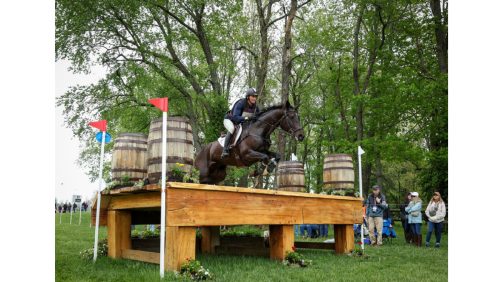Three horses have now tested positive for equine herpesvirus-1 in Michigan, and one unrelated Pennsylvania horse tested positive for EHV-1 as well.
On March 19, the Michigan Department of Agriculture was notified of a Livingston County horse testing positive for EHV-1. That horse was euthanized.
As of April 2, two additional Michigan horses have tested positive for EHV-1. Both horses developed fevers and are under veterinary care. One of these additional positive horses is from the same Livingston County stable in which the index horse resided.
The second additional positive horse is at a separate stable in Saginaw County, in which horses attended a March 7 competition in Barry County, which was also attended by the initial positive EHV horse. There are currently four facilities under quarantine, including the two facilities to which the EHV positive horses reside, that are monitoring horses for signs and symptoms of illness.
ADVERTISEMENT
MDARD continues to trace all contacts of infected horses, and you can follow new cases and receive information on the MDARD Facebook page.
In a separate event, a Pennsylvania horse competing at an unknown event in Maryland on March 15 has also tested positive for EHV-1, according to a March 31 release from the Maryland Department of Agriculture. The horse’s facility in Pennsylvania is currently quarantined, and no further cases have developed. The horse that is sick did not exhibit any symptoms until March 22 and did not exhibit any signs of illness while in Maryland. The horse is currently improving.
The officials of the Maryland show have contacted all trainers of horses in the division that the sick horse was shown in to alert them of the risk and recommend they monitor their horses through April 5, which is the end of the 21-day incubation period for equine herpes. Follow news on the MDA Facebook page.














